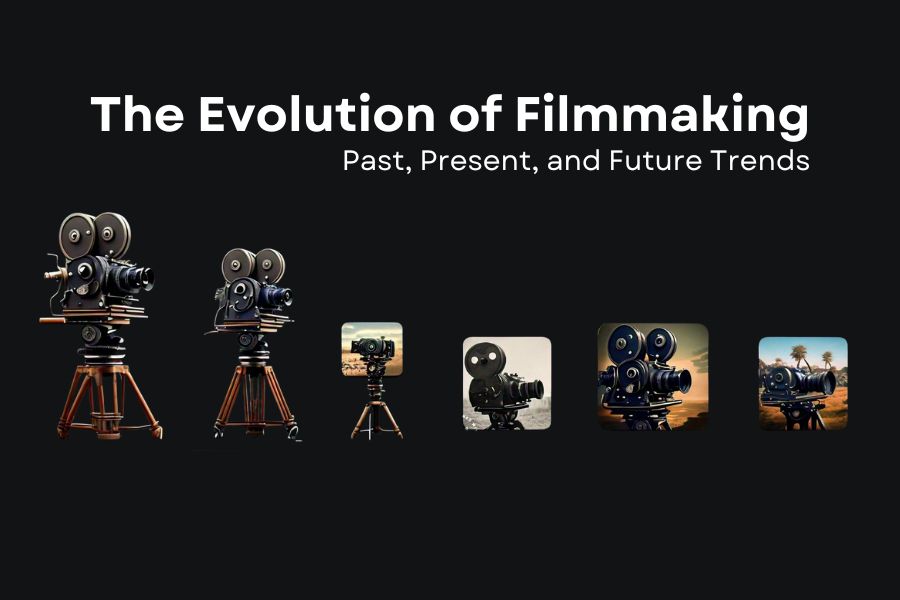Table of Contents 10 Filmmaker Skills
Welcome to my comprehensive guide on mastering essential filmmaking skills in 2024! I’m Ahmed Afridi, a filmmaker dedicated to helping fellow creators succeed in this dynamic industry. In this guide, we’ll explore the dynamic world of filmmaking in 2024, where creativity meets technology to shape captivating cinematic experiences. As the industry evolves with innovations like virtual production stages and the dominance of streaming platforms, filmmakers must equip themselves with a diverse skill set to succeed. Let’s delve into the 10 essential skills every filmmaker should master this year.
1. Storytelling Skills
Importance of storytelling
Mastering storytelling is fundamental for captivating your audience and conveying your message effectively. Dive into online courses like those offered on MasterClass to understand story structures and character development. As a filmmaker, I offer classes to help students master the art of storytelling, guiding them through techniques that enhance narratives and engage viewers on a deeper level. Contact me if you’re interested in joining these transformative sessions!
Screenwriting and narrative structure
Explore resources like Syd Field’s “Screenplay” and screenwriting programs at universities for insights into crafting engaging scripts. Analyze scripts from successful films like “The Shawshank Redemption” to understand narrative arcs and dialogue.
Emotional resonance in films
Study emotionally impactful films like “Forrest Gump” or “Life is Beautiful” to learn how storytelling techniques evoke powerful audience reactions.
2. Visual Storytelling Techniques

Shot composition and framing
Analyze iconic shots from films such as “The Godfather” and “Lawrence of Arabia” to grasp effective shot composition and framing techniques. Understand the rule of thirds and how it can enhance visual storytelling.
Camera movement techniques
Explore camera movements in films like “Birdman” or “1917” to see how dynamic shots can elevate storytelling and create immersive experiences.
Importance of lighting
Delve into lighting techniques used in films like “Blade Runner 2049” or “The Revenant” to understand how light sets mood and emphasizes narrative elements.
3. Sound Design & Music Composition
Role of sound in filmmaking
Understand how sound design influences audience perception and emotions by studying films like “Mad Max: Fury Road” or “Dunkirk,” known for their innovative soundscapes.
Basics of sound design
Explore online tutorials on platforms like Foley Grail and Lynda.com to learn about sound editing, mixing, and Foley artistry.
Music composition for film
Experiment with music creation software like GarageBand or LMMS to compose original scores that complement your film’s themes and emotions.
4. Pre-Production Planning
Production scheduling
Utilize tools like StudioBinder or Celtx to create detailed production schedules, including shooting timelines, locations, and talent availability.
Budget management
Learn to manage budgets effectively using budgeting apps like Mint or professional software like Movie Magic Budgeting.
Permit acquisition
Research local filming regulations and secure necessary permits through your city’s film office or platforms like FilmLA.
5. Directing Actors
Effective communication with actors
Develop clear communication skills to guide actors and convey your vision effectively. Study techniques from directors like Martin Scorsese or Steven Spielberg.
Learning from masterclasses
Explore online masterclasses by directors such as Werner Herzog or Aaron Sorkin to gain insights into directing techniques and working with actors.
6. Cinematography Essentials

Understanding camera technology
Stay updated with the latest camera technologies from manufacturers like Canon or Sony. Explore camera options and lenses suitable for your filming style and budget.
Impact of lenses on visuals
Experiment with different lenses to understand their effects on depth of field, focal length, and image distortion. Refer to resources like Nikon’s lens guide or Canon’s lens simulator.
Camera settings for desired effects
Master camera settings such as aperture, shutter speed, and ISO to achieve desired exposure, motion blur, and low-light performance. Refer to your camera’s manual or online tutorials for guidance.
7. Editing Techniques
Importance of editing in storytelling
As a filmmaker offering classes to master students in editing, I emphasize the pivotal role of editing in shaping narratives and pacing films. In my classes, we analyze editing techniques used in films like “The Social Network” or “Inception” to understand continuity, montage, and rhythm, all of which are crucial aspects of crafting compelling cinematic experiences. These films serve as excellent case studies to explore how editing choices can profoundly impact storytelling and audience engagement. If you’re interested in learning more, feel free to contact me!
Using editing software effectively
Familiarize yourself with industry-standard editing software like Adobe Premiere Pro, Final Cut Pro, or DaVinci Resolve. Explore online tutorials and forums for advanced editing techniques and workflow optimization.
Creating narrative flow
Master the art of editing by structuring scenes, trimming footage, adding visual effects, and enhancing audio. Study editing styles from renowned editors like Walter Murch or Thelma Schoonmaker for inspiration.
8. Marketing & Distribution Strategies
Film festivals and submissions
Identify suitable film festivals for your genre and style using platforms like FilmFreeway or Withoutabox. Craft compelling submission materials, including trailers, posters, and press kits.
Social media marketing for films
Utilize social media platforms like Instagram, Twitter, and YouTube to build a fan base, share behind-the-scenes content, and promote your films. Explore digital marketing courses on platforms like HubSpot Academy for marketing strategies tailored to filmmakers.
Distribution channels and strategies
Understand distribution options, including theatrical releases, streaming platforms, DVD sales, and international markets. Research distribution companies and attend industry workshops or webinars for insights into distribution strategies and negotiations.
9. Collaboration in Filmmaking
Communication and teamwork
Cultivate effective communication skills to collaborate seamlessly with your crew, cast, and production team. Utilize project management tools like Slack or Trello for streamlined communication and task management.
Delegation of tasks
Assign roles and responsibilities based on team members’ strengths and expertise. Foster a collaborative environment where ideas are shared, and feedback is encouraged for optimal creativity and productivity.
Positive work environment
Create a positive and inclusive work culture that values diversity, creativity, and mutual respect. Encourage open communication, feedback sessions, and team-building activities to foster strong relationships within your team.
10. Adaptability in the Film Industry

Embracing new technologies
Stay updated with emerging technologies like virtual production stages, AI-driven filmmaking tools, and immersive storytelling formats. Experiment with new technologies to enhance your storytelling capabilities and stay ahead of industry trends.
Resonating with modern audiences
Understand audience preferences, trends, and cultural shifts to create relevant and impactful content. Embrace diverse storytelling formats, platforms, and genres to engage with modern audiences across demographics.
Continuous learning and growth
Commit to lifelong learning through workshops, seminars, online courses, and mentorship programs. Stay curious, explore new ideas, collaborate with fellow filmmakers, and evolve your skills to remain competitive and relevant in the ever-evolving film industry.
Conclusion
By mastering these essential filmmaking skills and embracing a mindset of continuous learning and innovation, you’ll not only create compelling films but also carve a successful and fulfilling career in the dynamic world of cinema.
Unique FAQs:
1. Q: How can I improve my storytelling skills as a filmmaker?
A: Read scripts, watch diverse films, seek feedback, and practice storytelling through short films or scripts.
2. Q: What are some cost-effective ways to enhance sound design in my films?
A: Use free sound libraries, collaborate with sound enthusiasts, learn basic sound editing software, and experiment with Foley techniques.
3. Q: How important is networking for filmmakers, and where can I find industry events?
A: Networking is crucial for career growth. Attend film festivals, join online filmmaking communities, and participate in industry workshops and events.
4. Q: What are some strategies to fund independent film projects?
A: Explore crowdfunding platforms, apply for grants and fellowships, seek sponsorships, and consider co-productions or partnerships.
5. Q: How can I balance artistic vision with commercial viability in filmmaking?
A: Understand audience expectations, market trends, and budget constraints. Strive for a creative vision that resonates with audiences while being mindful of production costs and revenue potential.

